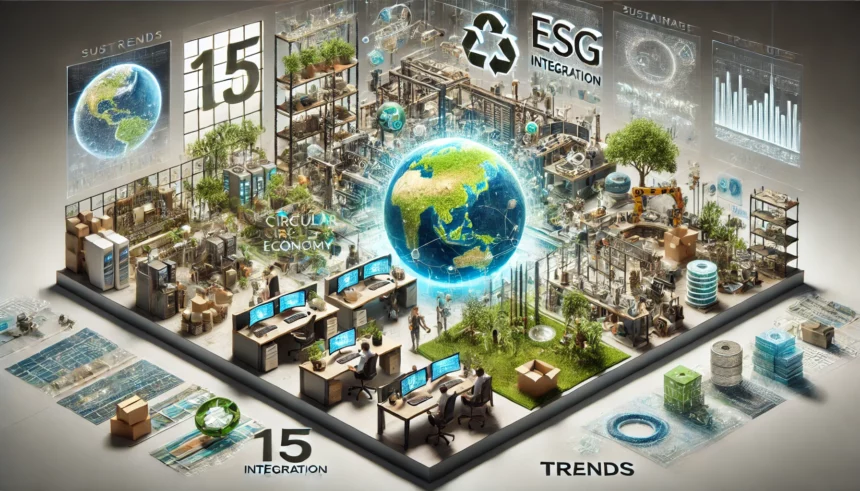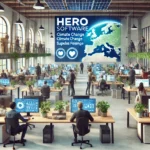Sustainability is no longer a buzzword; it’s a critical component of modern business strategies. Companies worldwide are integrating sustainable practices to build a more resilient and responsible future. Here’s a look at the top 15 trends shaping sustainable business practices today.
1. Embracing ESG Principles
Businesses are increasingly incorporating Environmental, Social, and Governance (ESG) criteria into their core strategies. This shift helps enhance long-term sustainability and meet stakeholder expectations.
2. Circular Economy Adoption
The circular economy focuses on minimizing waste through recycling and reusing materials. This approach not only conserves resources but also opens up new economic opportunities.
3. Conscious Consumption
Consumers are becoming more aware of their environmental footprint, opting for sustainable products. Companies aligning with this trend can gain a competitive edge by adopting eco-friendly practices.
4. Climate Leadership
Businesses are setting ambitious sustainability goals and reducing carbon emissions to address climate change. Leading in climate action can significantly boost a company’s reputation and stakeholder trust.
5. Building Back Better
Post-pandemic recovery is driving businesses to invest in green technologies and sustainable infrastructure, aiming to create a resilient and equitable future.
6. Rethinking Supply Chains
Sustainable supply chains involve responsible sourcing and minimizing environmental impact. Companies are reevaluating their supply chains to improve efficiency and reputation.
7. Eco-friendly Packaging
The shift towards sustainable packaging materials is growing. Businesses are exploring alternatives to single-use plastics to minimize waste and appeal to eco-conscious consumers.
8. Innovative Product Design
Sustainability-focused product design emphasizes durability and recyclability, reducing waste and extending product lifecycles. This approach fosters consumer loyalty and brand differentiation.
9. Decarbonisation Efforts
Achieving net-zero emissions through renewable energy and improved energy efficiency is a key goal for many businesses. Decarbonisation is essential for mitigating climate change and meeting regulatory requirements.
10. Valuing Human Capital
Companies are prioritizing the well-being and engagement of their workforce, offering fair wages, safe working conditions, and growth opportunities. This focus can lead to higher productivity and employee satisfaction.
11. Nature Conservation
Protecting natural systems is becoming a corporate priority alongside climate goals. Investments in conservation projects and sustainable land use practices enhance biodiversity and ecosystem health.
12. Transparent Sustainability Disclosures
Mandatory sustainability disclosures require companies to report on their environmental and social performance, building trust with stakeholders and identifying areas for improvement.
13. Resilient Supply Chains
Businesses are ensuring transparency and ethical sourcing in their supply chains to manage risks and seize opportunities. Resilient supply chains can better withstand disruptions and support business continuity.
14. Sustainable Consumption and Production
Minimizing waste and promoting circularity in production processes are key trends. Sustainable production practices save costs and provide environmental benefits.
15. Leveraging Technology for Sustainability
AI and other technologies are increasingly used to manage and improve ESG data. These tools help businesses track sustainability performance and make informed, data-driven decisions.
Conclusion
The push towards sustainable business practices is more than a trend—it’s a necessary shift towards a healthier, more resilient future. By adopting these 15 key trends, companies can make a substantial positive impact on the environment and society, fostering a sustainable world economy.
















